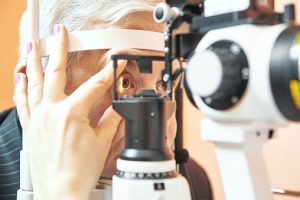
Although aging itself is a large contributing factor to vision loss, there are other factors, too, that can rob you of your vision. The good news is that many of these factors can be prevented so that you can maintain your vision. Here you will uncover the causes that can leave you sightless but also uncover how you can prevent these causes from stealing your vision.
6 common reasons for vision loss
High cholesterol: Here is another reason for you to maintain healthy cholesterol numbers—it can impair your vision. Deborah Herrmann of the Scheie Eye Institute at University of Pennsylvania’s Perelman School of Medicine explained, “Someone with high cholesterol can have transient vision loss that comes and goes, like a curtain or shade coming and going over their eye.” This occurs because the carotid artery becomes blocked as a result of plaque build-up. Patients may also experience pain in the eyes, a grey ring around the cornea, or yellow spots around the eyes, which are cholesterol deposits. Taking the necessary steps to reduce your LDL cholesterol can help you prevent high cholesterol-related eye problems.
Thyroid problems: Your thyroid controls your hormones and metabolism. In some cases, when it is not functioning properly, it can cause your eyes to become swollen and appear out of their socket (known as Grave’s disease). Some patients may also experience double vision. Having your thyroid checked can ensure you receive the necessary treatment to prevent such problems from occurring.
Diabetes: Herrmann explained, “Diabetes can make the macula—the part of the retina that controls your central vision—swell or retain fluid or fluid.” Statistics show that diabetics are 40 percent more likely to develop glaucoma and 60 percent more likely to develop cataracts. Diabetics can also develop diabetic retinopathy, which can lead to blurry vision or retinal detachment. The best thing you can do is prevent the development of diabetes, but if you are already diagnosed, then it’s imperative that you control your sugar levels.
Stroke: Vision changes may occur as an early sign of stroke. Vision loss may occur in one eye or both, leading to blindness. If damage occurs to some of the eye’s nerves, then double vision may result. Any sudden changes in vision should prompt you to call 911, and in the meantime, take necessary steps to reduce your risk of stroke like eating well, exercising, controlling blood pressure and cholesterol, not smoking, and reducing stress.
Retinal migraines: A retinal migraine is when you experience temporary blindness of the eye. “[The blind spots] only last for a certain number of minutes, and you may or may not have pain,” explained Herrmann. Other symptoms include flashes of light, blurry vision, or a headache prior to experiencing vision problems. You need to see a doctor if you experience retinal migraines often.
Autoimmune diseases: Autoimmune diseases occur when the immune system wrongfully attacks itself, causing symptoms. An early sign of multiple sclerosis is changes in vision, whether it be blurry vision, double vision, or temporary loss of vision. Other autoimmune diseases that affect vision include lupus, some types of arthritis, and myasthenia gravis. Once again, any sudden changes in vision should be reported to your doctor right away before the progress or become permanent.
Related: How to improve vision: 11 home remedies to improve eye health